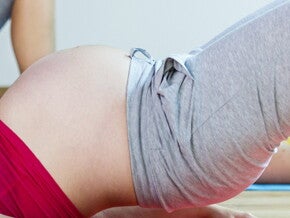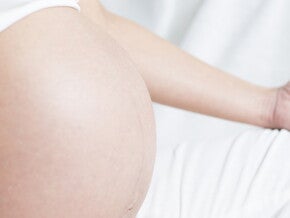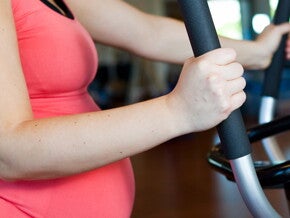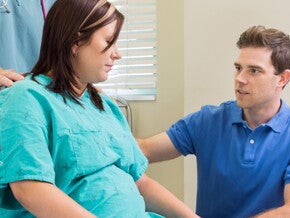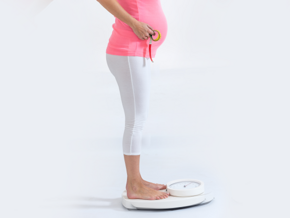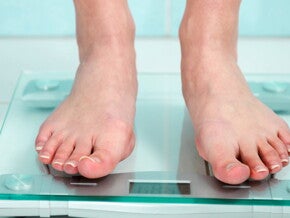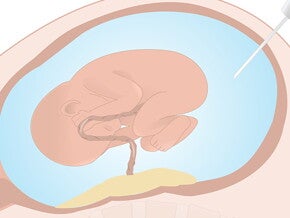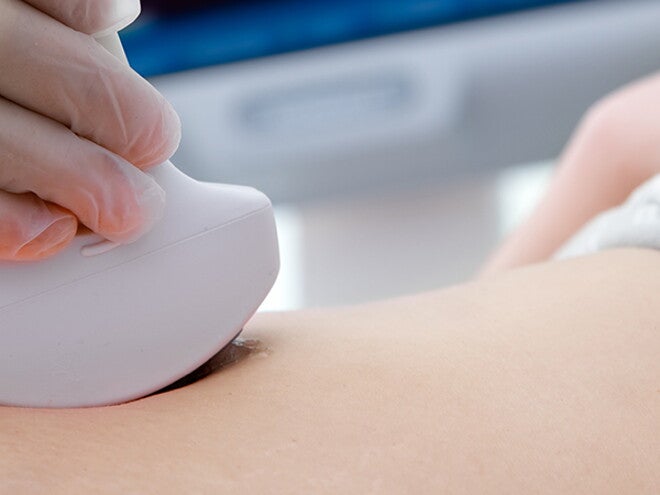
Special tests
Although not a routine test, ultrasound (scan) can convey the following information:
- Confirm that pregnancy is in the uterus and not in the tubes.
- Confirm the number of foetuses.
- Help to estimate gestational age of foetus.
- Check for foetal malformations (at 20 weeks).
- Help establish position and condition of foetus and placenta (in late pregnancy).
Some caregivers perform a scan at every visit; others are more conservative in their approach and may scan less often. The guideline below indicates what a scan will show at various times during your pregnancy.
Early pregnancy scan

Week 5: The pregnancy sac is visible.
Weeks 6–7: The embryo can be seen and the heart movement is visible.
Week 8: Early foetal movements and twins can be confirmed.
Weeks 9–10: The outline of the placenta is visible and the first measurements of the foetus can be made to establish a due date.
Midway scanning
Weeks 16–26: The foetus is larger and the organs become visible. The baby’s head is measured and femur length determined – both are important for determining the age of the foetus. Other important structures looked for in a routine scan include the stomach, the bladder, the spine and the external genitalia. The placenta is easily recognised from the rest of the uterus. The amount of amniotic fluid can also be assessed.
A scan done between 18–24 weeks is the single most important routine scan, because it gives an accurate assessment of the gestational age and can detect most of the major abnormalities.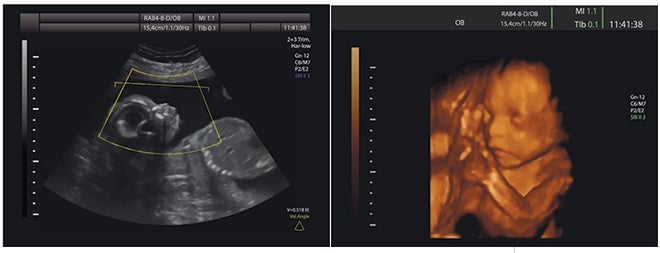
Late pregnancy scanning
The main reason for scanning at this late stage is to monitor foetal growth. This is done by measuring the circumference of the baby’s head, the length of the femur and the size of the abdomen. If there is any concern regarding foetal wellbeing, a cardiotocograph (CTG) will be done together with an assessment of foetal movements.

